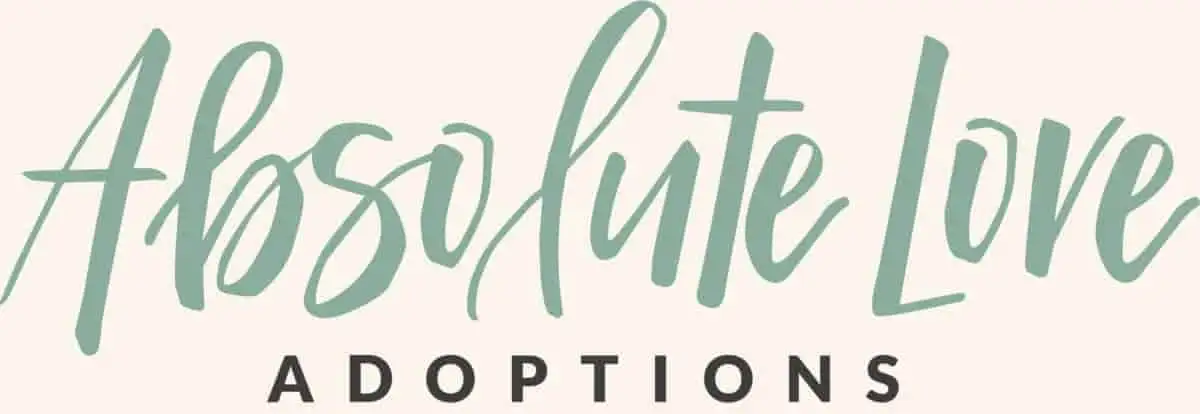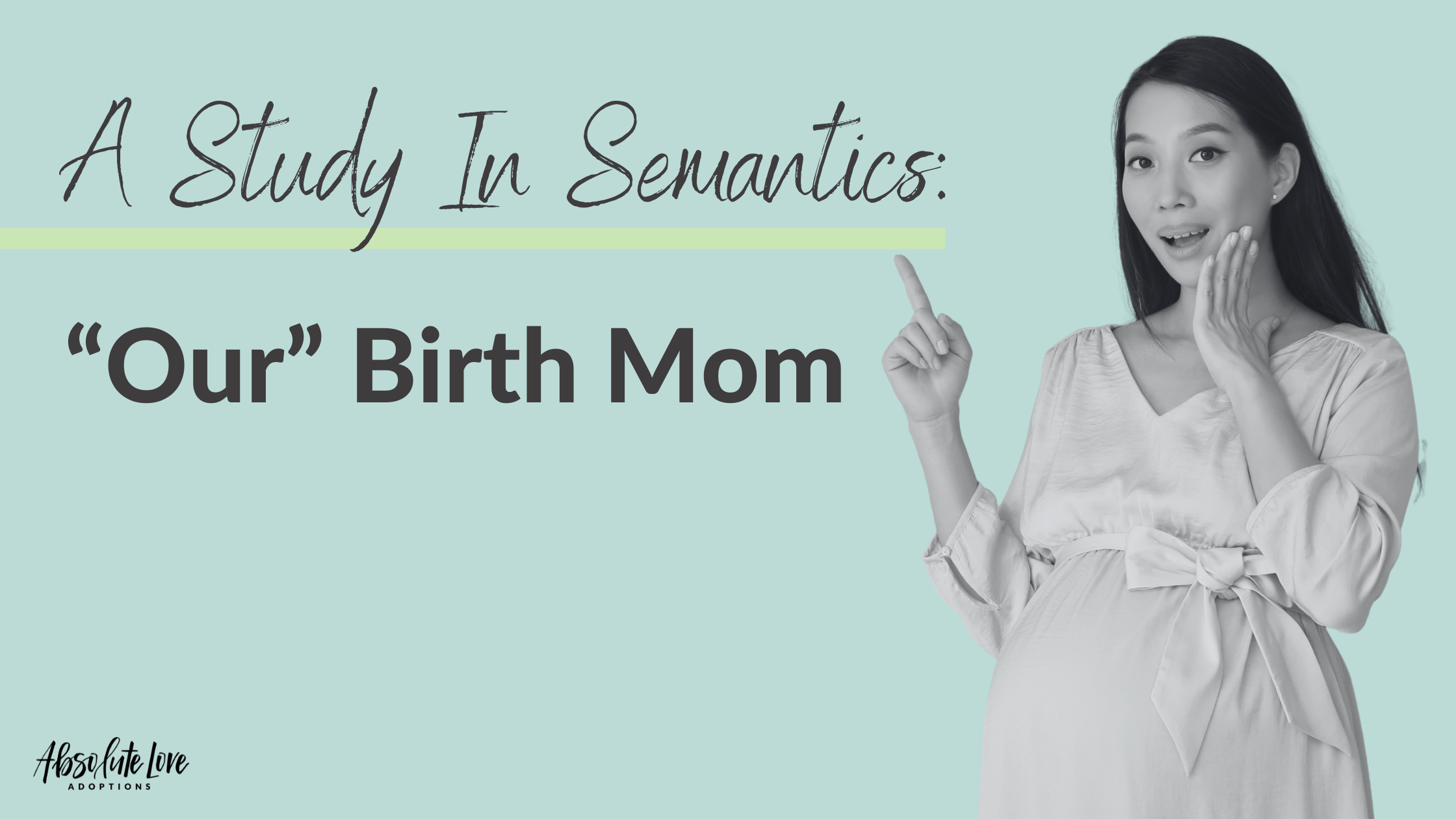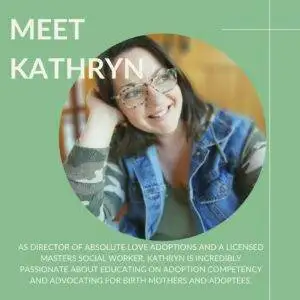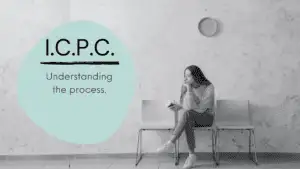Language is POWERFUL!
As a young social worker working at an adoption agency, I remember being tasked with joining a team to explore adoption language usage within the agency. We were assigned a specific word– “Case Worker”– and asked to dissect the word and figure out the pros and cons of the word being used in the adoption space. If we decided it was more con than pro, we had to come up with a new word. (Spoiler alert! We renamed this title “Adoption Specialist.”)
At the time, I was beyond frustrated with this assignment. It was so time consuming and I truly didn’t see the value in it. It was just semantics!
Or is it? As a seasoned social worker, I see it differently. Especially in adoption– a space with intense power dynamics – the word you choose to use matters.
Why is the language we use important?
There is a philosophy that says that the language that you use actually works to shape your perception of the world. We know that if we say something over and over again, our brains believe it. It’s called the illusory truth effect– the more a person hears something, the more they believe it is true, even if it isn’t.
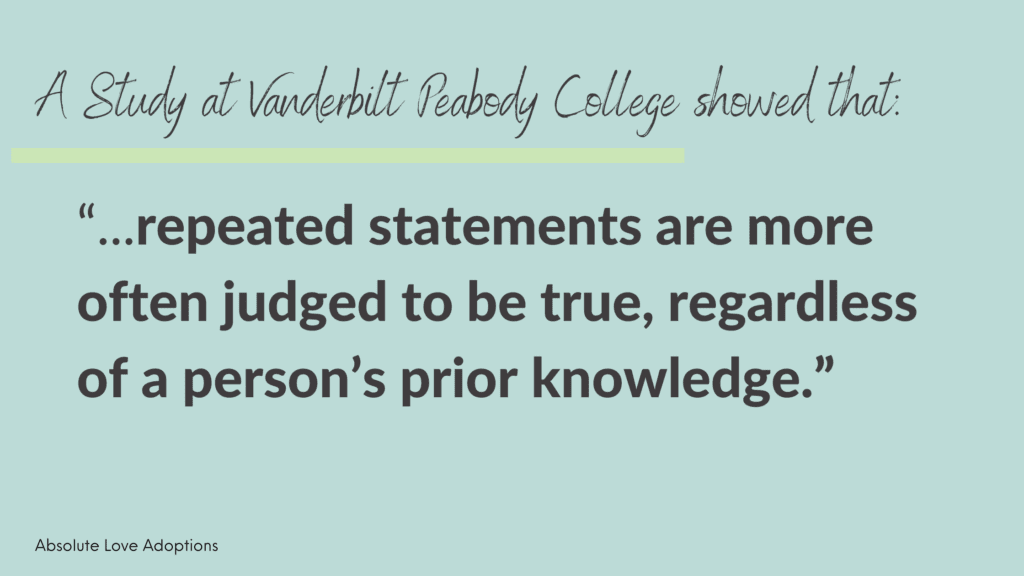
This means that the words we choose to describe something carry weight both inwardly and outwardly. Inwardly – on our belief system and also our behaviors – and outwardly – on the listener who will assign meaning to our words.
The words we use reflect our beliefs about other people and how we relate to them. For example, saying “feral cat” means that the negative association of “feral” is projected onto the cat. If you hear someone talking about a feral cat, you have assumptions about that cat before you meet it – especially if you’re choosing a pet to rescue at a shelter!
Scientific American had an article by Lera Boroditsky entitled “How Language Shapes Thought.” She says:
“But how do we know whether differences in language create differences in thought, or the other way around? The answer, it turns out, is both—the way we think influences the way we speak, but the influence also goes the other way.”
Studies have shown that changing how people talk changes how they think. Teaching someone new color words, for instance, changes their ability to discriminate colors; teaching someone about time gives them a new way of thinking about it.
What does this have to do with adoption?
We talk about language a lot in adoption – what TO say, what NOT to say. It can be really challenging learning to rewire your brain to say the right thing, and not the wrong thing, especially in a place where “the right term” is evolving.
But we know language meaningfully shapes how we understand the world around us.
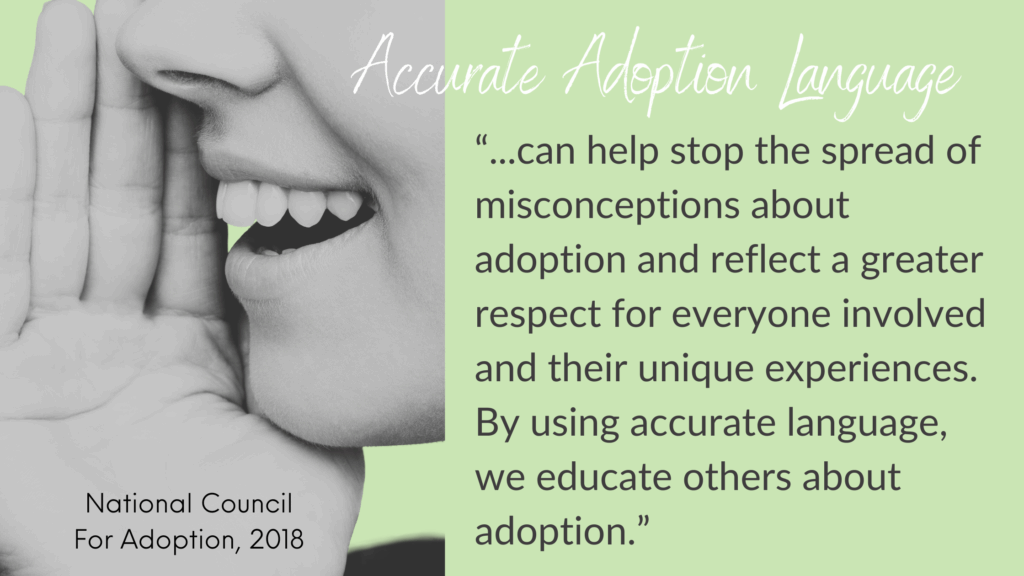
One language faux pas we see frequently in adoption is the use of “OUR birth mom” when an adoptive parent is referring to a child’s birth parent.
You may have heard someone say,
“We have such a great relationship with our birth mom! She and I text every couple of days about my son.”
“When we met our birth mom, we were so nervous!”
Let's break this down...
We use “our” and “my” to assert ownership over items, relationships, thoughts and feelings. (My house…my dog…my experience with this…)
When saying “our birth mom” you are communicating you have ownership over that person – that she is yours and she has responsibility to you in that way. In an environment where coercion is ripe, this use of “OUR” may be tied to deeper beliefs about birth mothers in general. Many people think that birth mothers are bad, poor, drug addicts, or that they are a vessel so that an adopting family can get what they want- a baby. These perceptions influence how you relate to her – and we have a whole course on this!
By saying “OUR birth mom” you are inadvertently claiming ownership over her, as though you own that relationship to her. In fact, your child does. So you may also be communicating that you have taken that relationship from your child and the child’s birth mom.
DTR: Define the Relationship
The birth mom is a woman who birthed a child she placed for adoption. She became THAT child’s birth parent. When you say “our” birth parent, you are saying that she birthed YOU. Which we know isn’t what you mean to say. If you’re saying she’s related to you now because she is the birth mother of the child you parent, say that.
Let’s honor our child’s adoption story by how we talk about it.
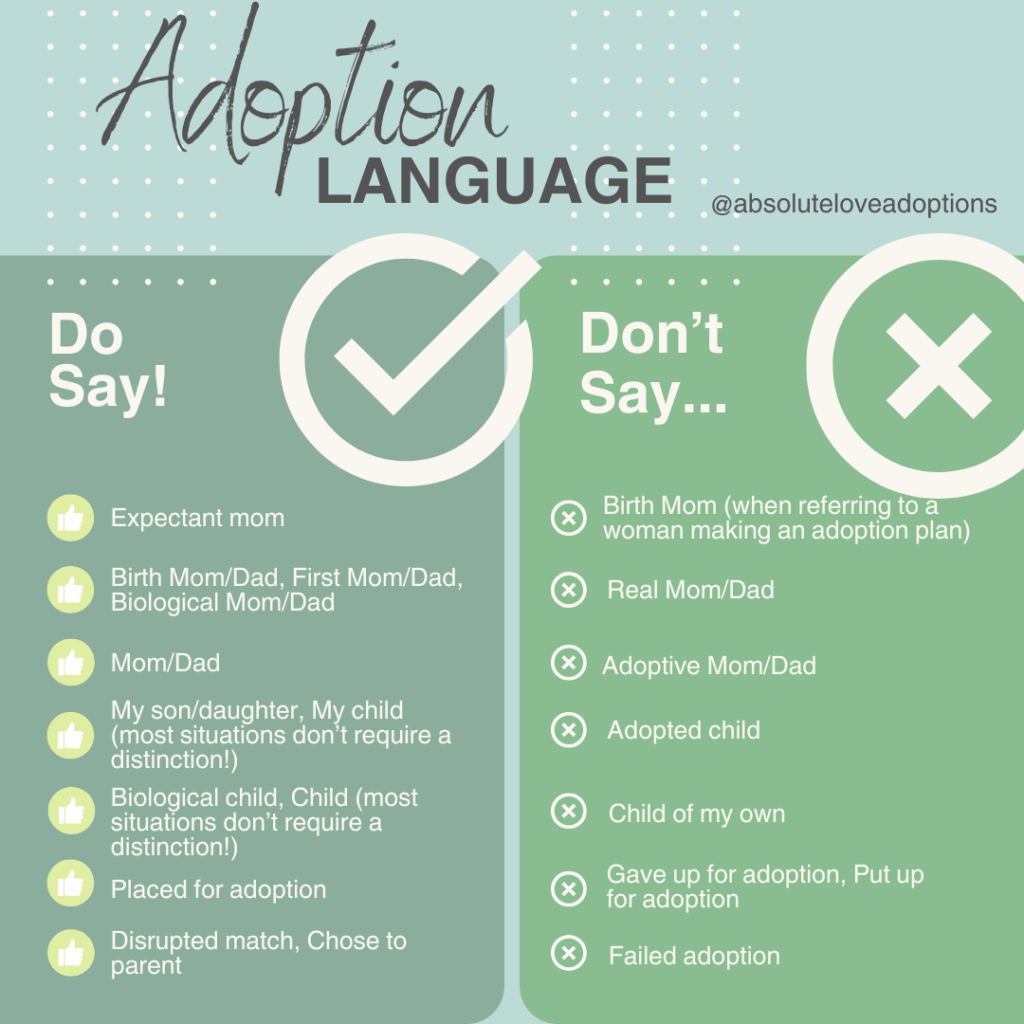
Language is important!
Please share this blog post with family and friends who know you are in the adoption process. Let’s get everyone on board with choosing language that is CURRENT and HONORING of adoptees and their families.
More info on shifting to positive adoption language: https://info.adoptmatch.com/words-matter-adoption-terminology
Other blog about semantics: What is a “Unicorn” in adoption? (absoluteloveadoptions.com)
References: By Lera Boroditsky
